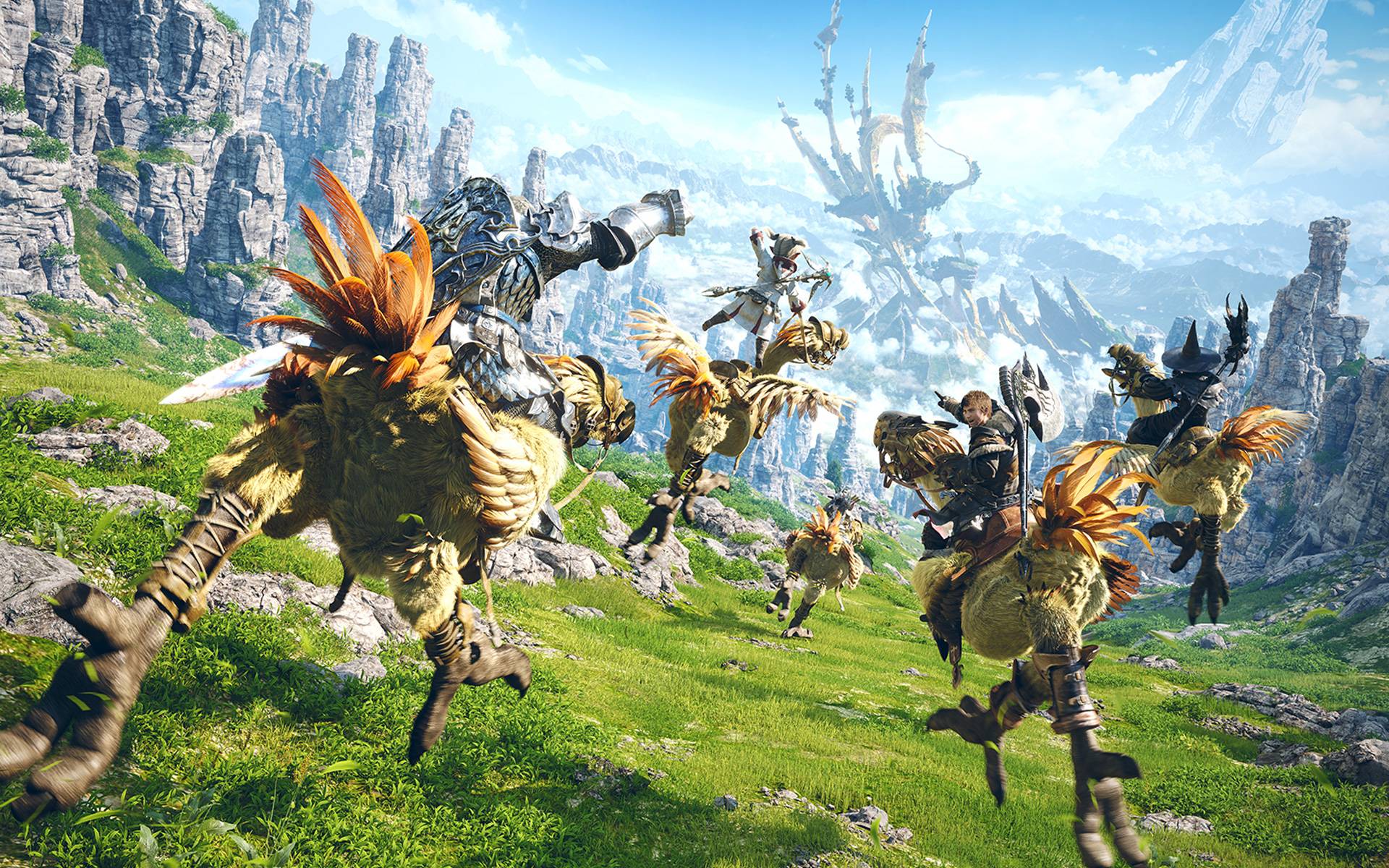
Final Fantasy is one of the most iconic franchises in gaming, and with good reason. It provided the foundation for numerous RPGs to follow. From characters and plot to setting and battle mechanics, Final Fantasy laid the groundwork for a generation of role playing games.
For many of us, a Final Fantasy game was (is) an integral part of our nascent gaming years. Like a good book, these games remind us of what and who we were when we last encountered them and who we are today -- and there is often something new to discover every time we revisit those worlds.
The first 10 Final Fantasy games are typically considered the series' best. Each game seemed to evolve into something new while retaining much of what came before it, providing unique, yet nostalgic gameplay experiences with each iteration. However, that does not mean each FF game is created equally. Some lack dynamic characterization, where others skimp on story -- and some try to include too much new all at once. Still, even the lowest ranked in such a list possesses at least one significant strength --not something that can be said for many games or franchises.
But for this list, we decided to highlight plot, characterization, and gameplay mechanics as the main means of evaluating how each game stacks up compared to its peers. With that in mind, number 10 on the list probably won't be much of a surprise...
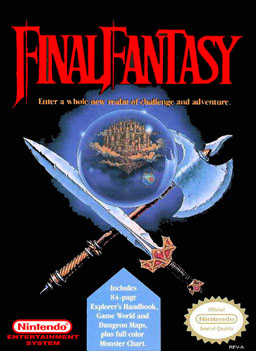
10: Final Fantasy
It's difficult to place the game that started it all low on this list. There's quite a bit that Final Fantasy does right, make no mistake. The setting is pure high fantasy, and the story is too -- at least, what exists of it. Along with Dragon Quest, the original FF pretty much ensured RPGs would go hand in hand with medieval, European-type settings for years to come. The battle and job systems set the tone for countless RPGs to follow as well, and despite being linear in nature, the game still provides players with a good deal of freedom to explore its world, unlike the much maligned Final Fantasy XIII.
Apart from being the first in so many ways, these systems still hold up and make for a good game today, -- particularly if you happen to be playing the GBA version of FF, with its more streamlined magic system. It's only natural, though, that later games in the series would improve on what this one started, including the themes of justice and lust for power, the crystal motifs, and job classes. Still, the original Final Fantasy provides an enjoyable experience, even if it is bare bones.
Image via Wikipedia
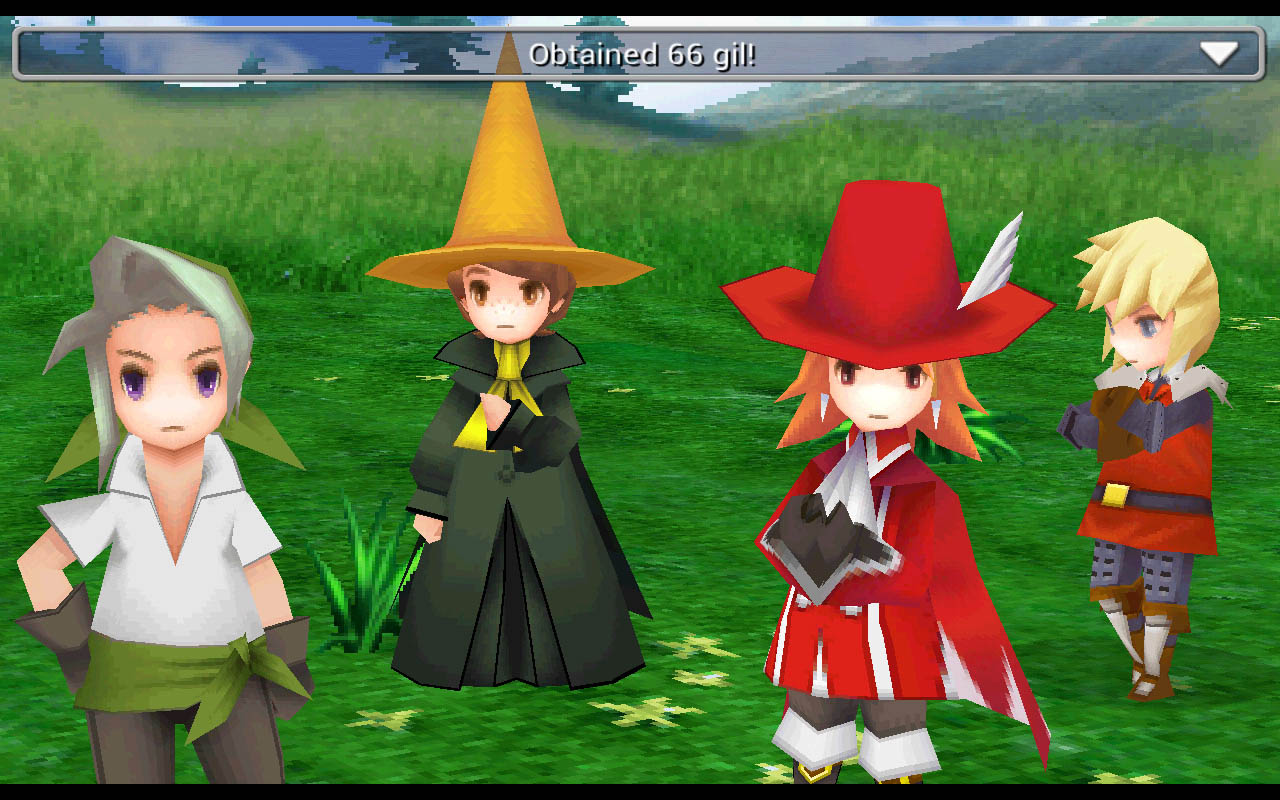
9: Final Fantasy III
Final Fantasy III is an interesting game in the series. For the majority of non-Japanese speaking Western players, the 2006 DS release was the first chance to experience the game, even though it originally appeared on the first Famicom system in 1990. There's not much to the story (with even less than its predecessor) and the remake had to (try to) expand on the main characters' backstories a fair bit in order to give them something resembling personalities.
The overall themes in Final Fantasy III are very similar to those of the first game. Although they add a few additional quirky elements like shrinking down to save a tiny village, they also introduced an important concept that would be repeated throughout several later games: the main antagonist's wish to be an immortal deity.
What stands out the most about this entry in the series is its battle system. Final Fantasy III has a much-expanded job system compared to the series' first entry, including well-known classes like the Sage and the Ninja (though in later iterations it's mostly found in spinoffs like Final Fantasy Tactics). Overall, it makes for a much deeper experience, which helps compensate for the fact that there isn't much else in terms of depth on offer here.
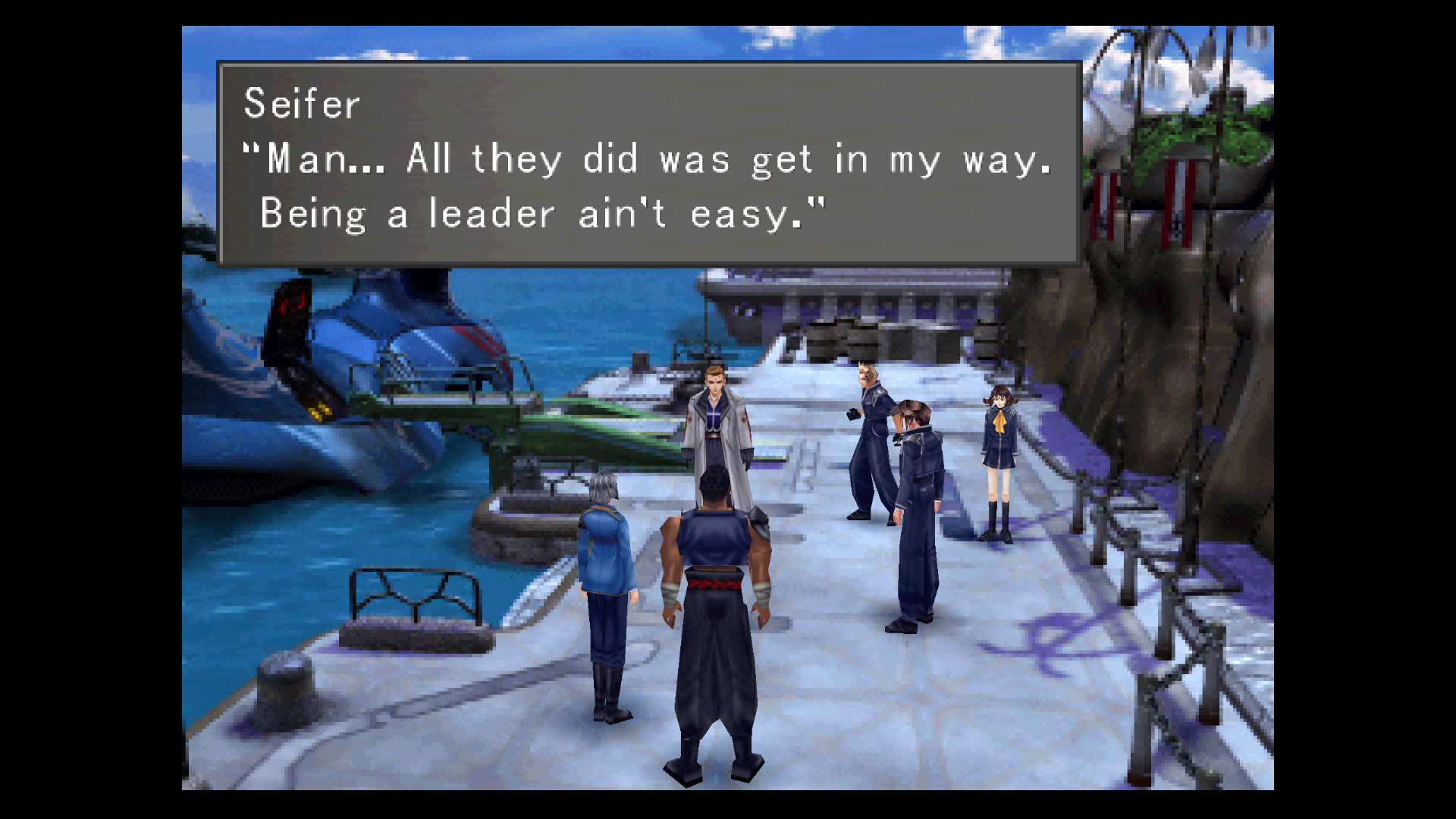
8: Final Fantasy VIII
When it was first released, many hailed Final Fantasy VIII as the best in the series to date. In itself, VIII is a good game. The developers made several changes by altering the gameplay and visual styles, and best of all, the difficulty scales -- so you're never really over-leveled like in some of the other FF games. However, there are some drawbacks that keep FFVIII from being as great as some of the others in the original set, with the main protagonist, Squall, being one of them.
He's annoying for a good chunk of the game. He has an angsty attitude fitting the setting, but it's not endearing. It also makes it a bit difficult to fully believe his abrupt change from the "whatever" school boy to more dynamic hero later ibn FFVIII's narrative.
On top of that, the draw and junction systems are unfortunately tedious as well. The story is interesting, as is the setting.
Yet neither really contributes to the other, unlike later games in the series, such as VI and VII. The plot contains some other issues too. Time travel is difficult to implement well in most stories and almost always leaves gaps in the logic -- sorry J.K. Rowling -- but a significant issue in the game is the theme it ends up centering around as a result of the time travel. The majority of Final Fantasy games emphasize how choices shape one's actions and the world.
However, VIII is all about predetermination, where almost everyone's actions are set in stone from the outset. Combined with the fact that it's ultimately a coming-of-age story, it is much narrower in depth and scope and keeps the game's appeal and major themes from being as universal as other games in the series.
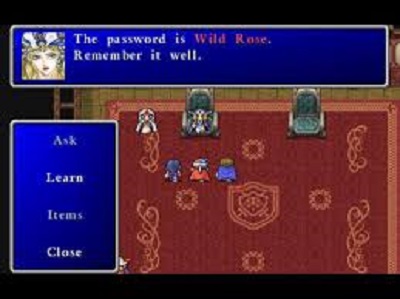
7: Final Fantasy II
Many might think it odd to rank Final Fantasy II higher than the first and third entries in the franchise. It is true that the sequel makes use of some odd mechanics, though there are several other important elements in the game that help it rank higher than other entries.
For starters, it lays the foundation for multiple recurring themes and characters, including Cid the gruff airman, the reluctant Prince Gordon, who can also be seen as a forerunner of the bard, Prince Edward from Final Fantasy IV, and Leila, who shares similarities with Final Fantasy V's Faris.
There's also the story. This was the first Final Fantasy game to place an emphasis on story, and despite being basic -- and a bit Star Wars-y -- it's not bad, focusing as it does on political intrigue and the consequences of unbridled lust for power, toying with concepts like the importance of family and forgiveness.
The inclusion of the learning feature makes the experience a relatively deeper one as well. As the characters learn more about their world and how it operates, so do the players. Admittedly, that immersion gets thrown out the window with the leveling-up mechanic, where Final Fantasy II replaces stat increases through leveling entirely, making things like attack, evasion, and spell levels increase depending on how often they are used.
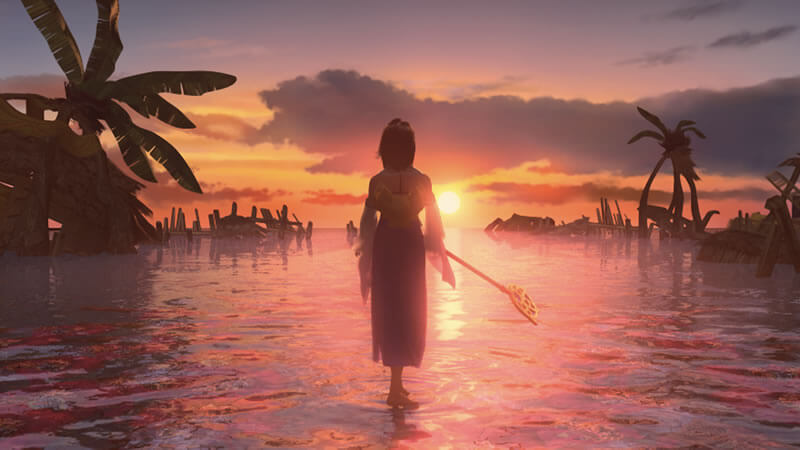
6: Final Fantasy X
Despite its altered visual style and setting, Final Fantasy X is often seen as the last of the original Final Fantasy games and a starting point for what the series would eventually evolve into. It retains a good bit of the earlier games' spirit, while still adding a lot of new concepts, and it does so successfully -- for the most part. The ATB is gone, with turn order determined by character speed, though that seems like a natural evolution. The setting is quite different too, including sci-fi elements like in the opening sequences alongside places of immense natural beauty, but the game pulls it off well, helped in no small part by the PS2's graphics.
The ATB is gone, with turn order determined by character speed, though that seems like a natural evolution. The setting is quite different too, including sci-fi elements like in the opening sequences alongside places of immense natural beauty.However, the game pulls it off well, helped in no small part by the PS2's graphics -- or the PS3, if you are playing the HD version.
There are also changes to the skill system that allow you to plot out how your characters will grow, which adds a good deal of customization to battle styles. The cast of characters is memorable, being a fairly intimate bunch, and the story itself takes on new themes of the role of knowledge and the nature of reality, adding on to the identity themes introduced in earlier games.
However, this adventure is much more linear than previous Final Fantasy titles, and the biggest drawback is that half the time, you watch the game, rather than play it. It makes for a deeper story, though at the expense of the gameplay itself.
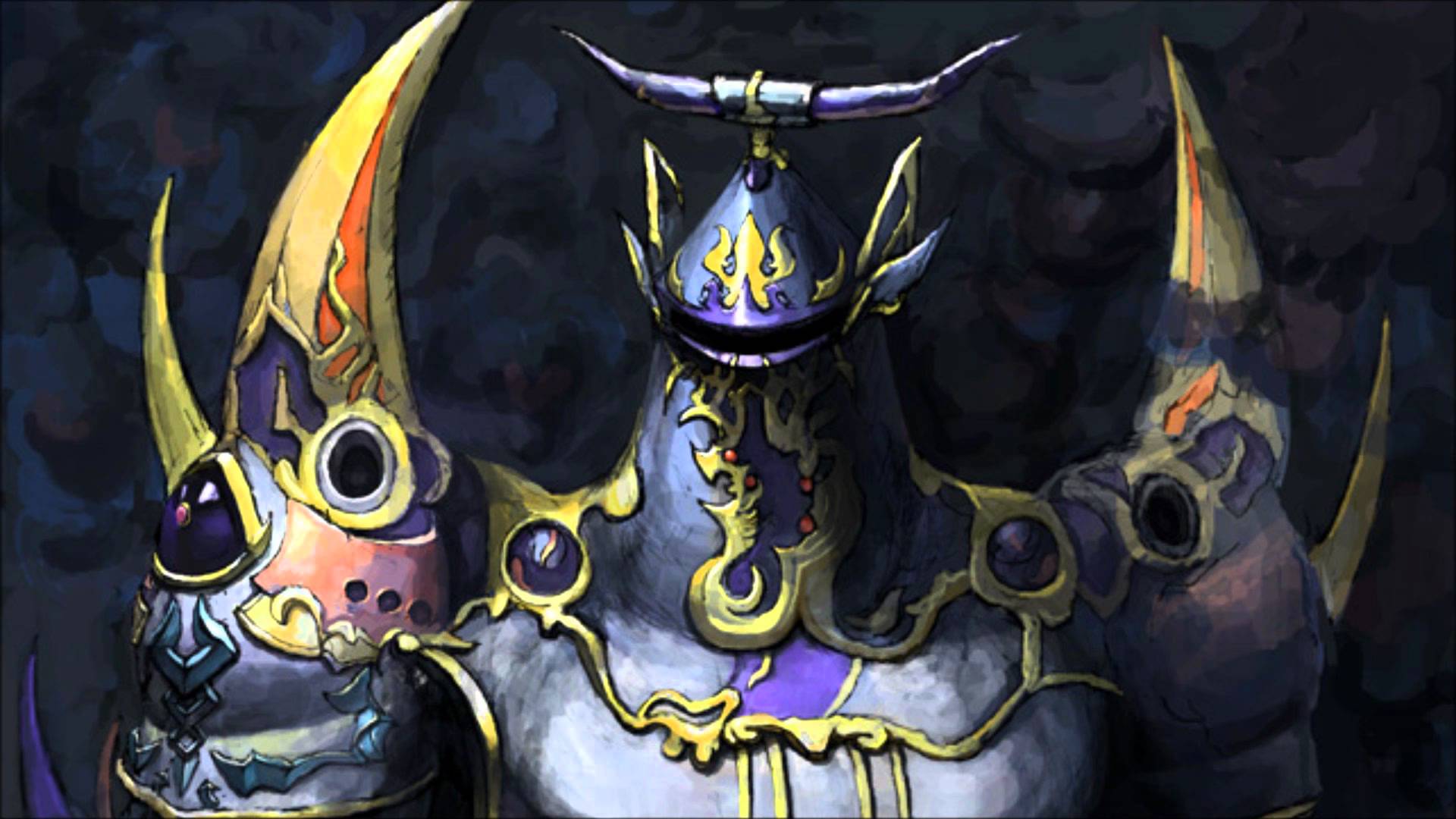
5: Final Fantasy V
The series' fifth entry, Final Fantasy V, refines many elements from the earlier games and is a solid game all around. Carrying on from Final Fantasy IV, the game expands the crystal concept further by giving them a more practical purpose -- preventing the evil Exdeath from returning to power and, as all good Sauron-like sorcerers do, creating a world of darkness and fear. There's the usual amnesiac theme with Ganulf, though it too serves a story-related purpose, even if Ganulf isn't too far removed from Tellah.
The job system is one of the game's key highlights, however. It improves on Final Fantasy III in multiple ways, including introducing a new job, skills, and the ability to retain skills learned from previous jobs, which the remake of Final Fantasy III would incorporate as well. Not only does leveling up jobs provide a reason to engage in all those random battles, it also allows players a tremendous amount of freedom in crafting and shaping their party, which, in turn, allows for greater replay value as well.
The game also introduces a number of recurring themes, from mini-boss Gilgamesh to the idea of the power of the Ancients and the evils associated with meteorites that would be seen again in Final Fantasy VII. Yet for all its strengths, the characters themselves end up being less than central to the story for the most part, with Bartz, in particular, being pretty flat overall.
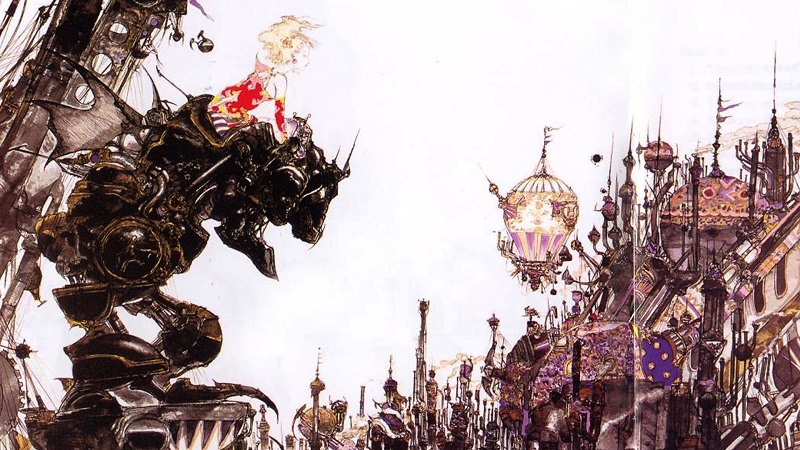
4: Final Fantasy VI
Final Fantasy VI is often regarded as one of, if not the best, entries in the series and best RPGs of all time. It certainly has the right to be held in such high esteem. The game successfully makes the leap from a medieval setting to a more industrialized one and explores some of the problems that come along with that setting, namely exploitation and greed.
The story -- and villain -- are top-notch, too. Kefka repeats the, "I want to be a god" theme, but combines it with his own special brand of insanity, allowing him to play the large-scale role of a villain seeking world domination and the smaller-scale, personal villain who commits atrocities for the fun of it.
The game features a large cast of memorable protagonists, and, for the first time in the series, almost erases distinctions between them. That, and the number of characters, is both a blessing and something of a curse. It makes for a unique story and gameplay experience, but the number of characters means it's difficult to explore and develop their stories as much as with a smaller cast, and the lack of unique character distinctions in battle takes a bit of the strategizing out of the experience.
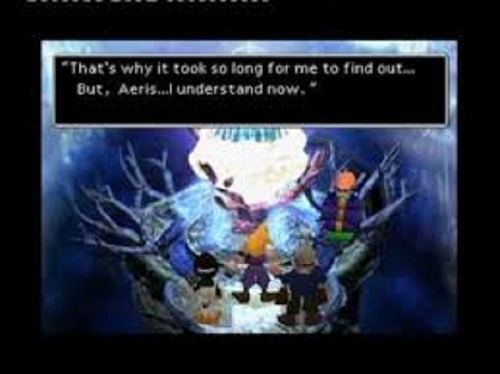
3: Final Fantasy VII
That's right: Final Fantasy VII is not at the top of this list. Read on before you sharpen your pitchforks and fire up your torches, though.
Its glowing reputation is well-deserved, just like with Final Fantasy VI. The story is a true epic in the most genuine sense of the word, spanning a plethora of varied locations and encompassing numerous memorable characters, both just and evil. The setting is wildly different from anything that came before, but unlike Final Fantasy VIII, it's vital to the story and characterization.
Industrialization's gritty dark side is fully realized, where it was only hinted at in the previous installment, and it allows the developers to explore it in more depth -- Shinra's merciless grasp on the entire world at the expense of both people and environment, the problems that arise from experimentation without ethical guidelines, and the nature of individual identity and what it means to be human in the midst of all of this.
The cast is varied, but small enough to focus fully on each, which is vital for a story of this magnitude. Focused as it is on character, though, important members like Tifa and Barrett are ultimately rather static in comparison with Cloud, which is a shame, given the material present to work with. Additionally, as good as the story is, it is also prone to being convoluted at times, a problem plaguing some later games in the series as well.
The game continues tweaking what VI started in terms of mechanics as well, replacing Espers with Materia and erasing differences between skills and potential growth -- except with Aeris, of course. Along with limit breaks, it makes battles less of a challenge than they should be, to the point where being limited to three party members really isn't too much of a big deal.
Image via YouTube
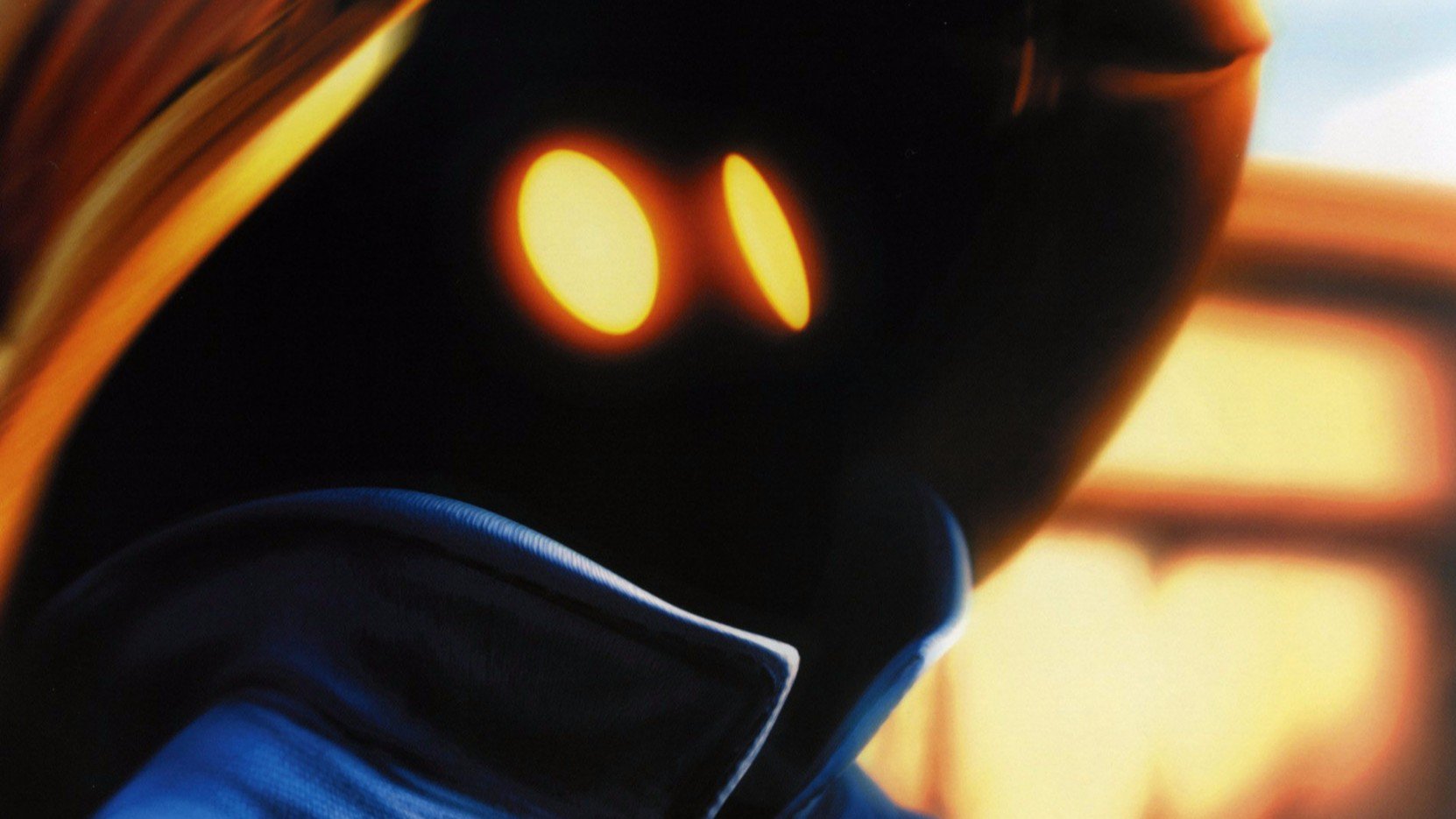
2: Final Fantasy IX
If you're playing the games chronologically, Final Fantasy IX marks a return to "normalcy" of sorts for the series. With its medieval-ish locations fused with elements sci-fi, a plot based around political intrigue (at first), it would seem the ninth entry was too same-y to stand out. However, IX improves on just about everything in the series and makes it one of the best.
The plot evolves to include the themes of identity and humanity first introduced in VII, while also featuring its own lunatic with ties to the main hero. The mechanics offer a more streamlined ability system, where you learn abilities from the equipment you select; buying the best of the best every time won't always be a wise idea, since you'll miss out on some vital abilities.
The characters themselves are a definite strong point. The cast is varied, ranging from a small boy to a disgruntled princess who wants to restore her mother and the stodgy knight with a shining heart who only wishes to fulfill his duty. Final Fantasy IX restores the earlier distinctions between characters in battle as well. Garnet is as delicate as you'd expect for a white mage, while Steiner is a powerhouse, and Quina is…well, Quina. Combined with the fact that the plot frequently forces you into situations where you only have certain party members available, it makes for a much more interesting and varied experience overall.
Plus, the game has one of the most unexpected and memorable opening sequences of any video game. At times, though, it can be a bit too easy, and the ATB meter seems to move excruciatingly slow sometimes, but these are minor issues on whole.
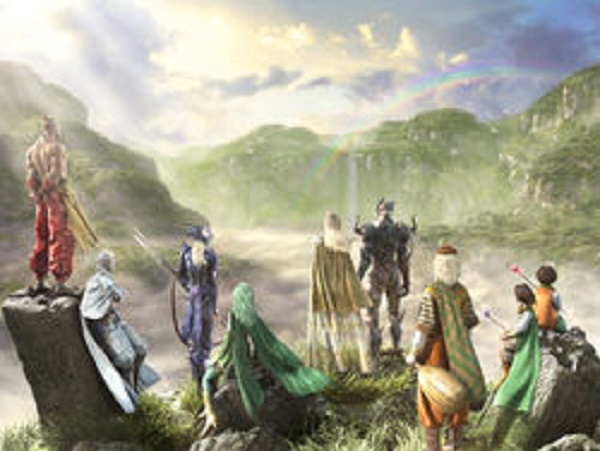
1: Final Fantasy IV
Final Fantasy IV combines a myriad of different settings, strong characters, a unique twist on the crystal motif, and an engaging battle system to help it rise above its fellow games. The story begins rather unexpectedly, with the hero committing a horrible act for his sovereign --- which you quickly learn is one among many -- and questioning his place and identity as a result.
Cecil is probably the most interesting of all Final Fantasy heroes as a result. He starts as a villain and the consequences of his moral weakness and inability to confront his king over what he knows is wrong leads to a host of other problems for himself and everyone he comes into contact with. There's Rosa's ordeal, of course, but also Tellah and Edward's sorrow -- and even Palom and Porom's suffering that all come from Cecil. His entire journey, not just his quest to be a paladin, is one of redemption, giving a unique atmosphere to the entire game and emphasizing the importance of the choices we make.
The rest of the characters are interesting in themselves, each with a story to tell. Tellah's has to be the most poignant, though, and there are few other games that have an old, frail man successfully taking on the main antagonist -- and then *spoiler* dying because of it.
This game was also the first to feature the Active Time Battle system, forcing players to strategize differently, especially when it comes to powerful spells and summons. Character strengths are as you would expect, too, with Rosa being weaker than her companions (though vital for success), Cecil as the all-around fighter and defender, and so on.
It's not short on difficulty either. Like IX, FFIV forces you to use certain party members, but this takes place throughout the story, and at times, makes each victory seem like it was hard fought and well earned. The segments with Edward are notable for that, though also the extended period of time where your only mage is Tellah, whose MP is purposely restricted for story purposes. All in all, Final Fantasy IV provides the most variety in gameplay, along with an emotional storyline touching on the essentials of human nature, for better and worse.
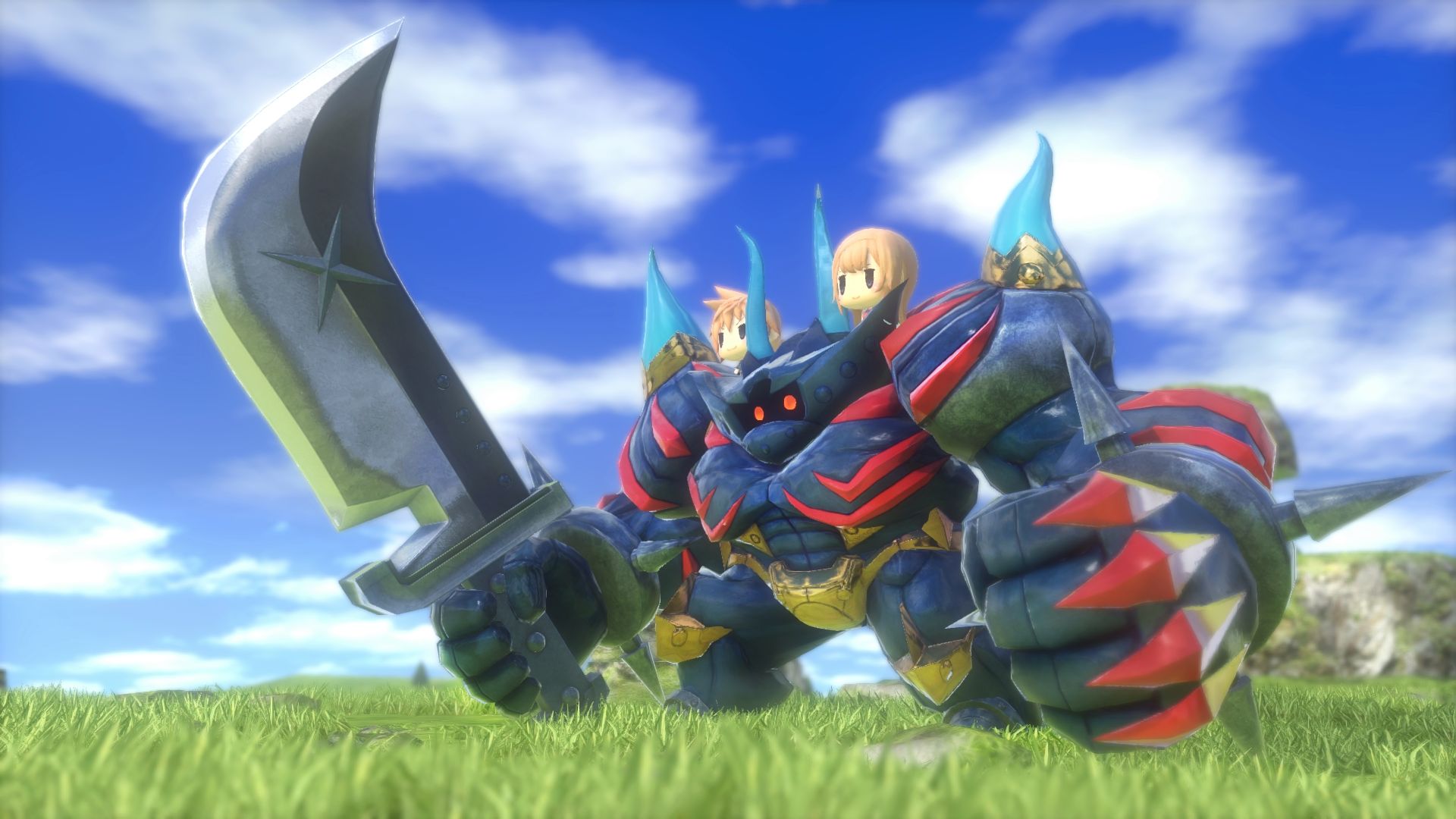
Despite their varied differences, each Final Fantasy game shares important characteristics. They all tell stories -- some better than others, of course --about what it means to be human and the consequences -- good and bad -- of one's actions. Each builds on its predecessor in some form or another, as well, be it fine-tuning the ATB system, making the job system more sophisticated, or simply presenting a highly engaging plot with intriguing characters and spectacular visuals.
Regardless of which is best, there is little wonder why this series has made such an impact on the gaming world.
How would you rank the first 10 Final Fantasy games? Let us know in the comments below!

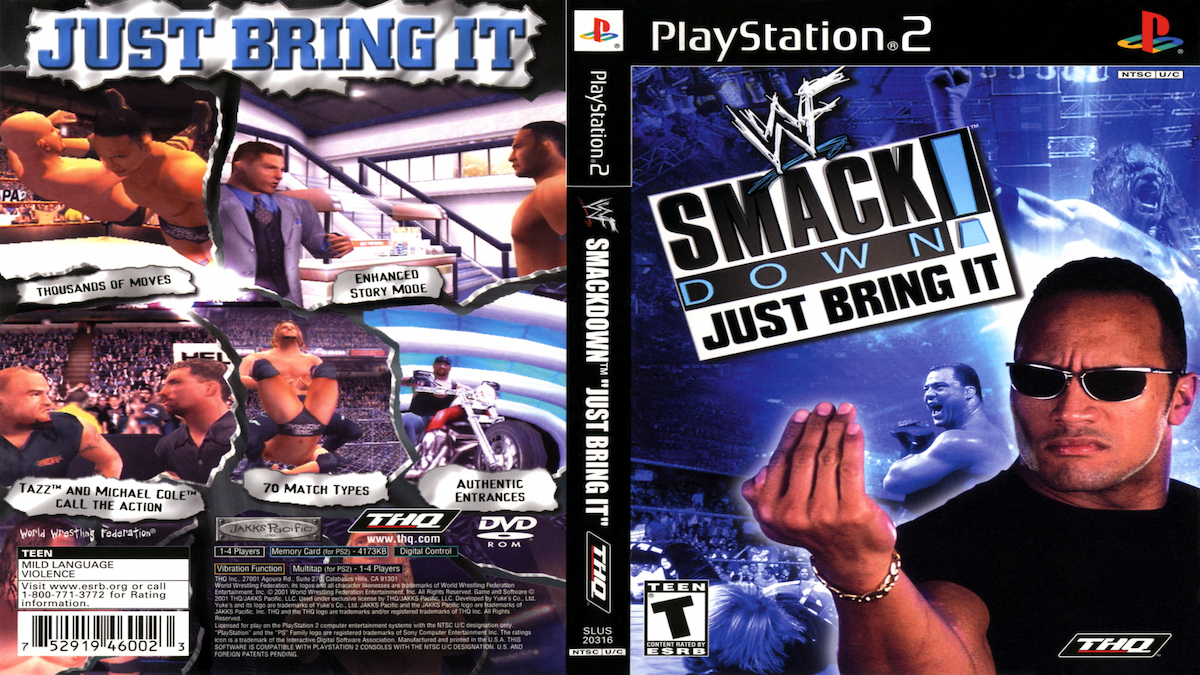
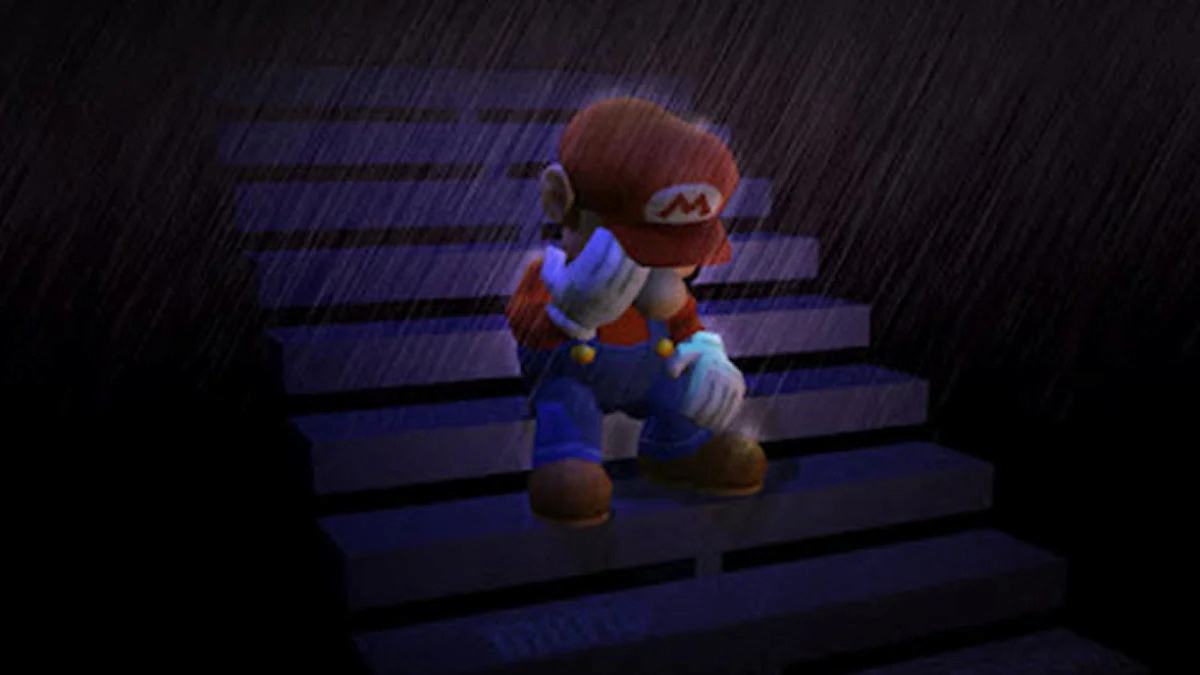
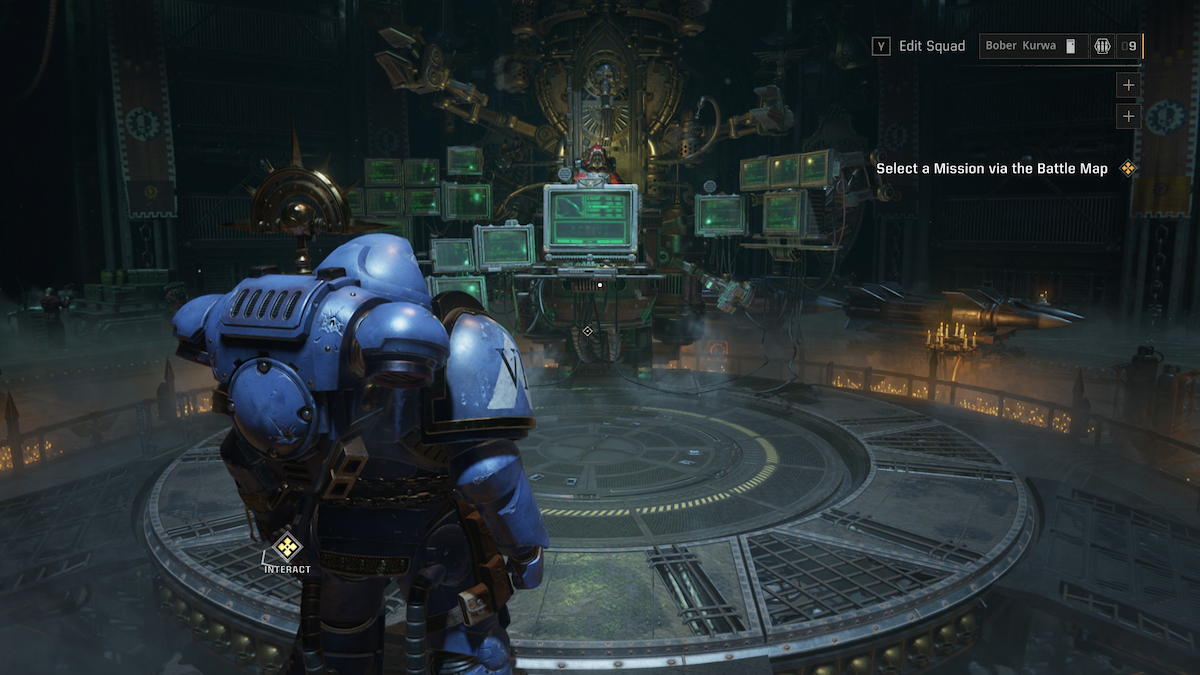
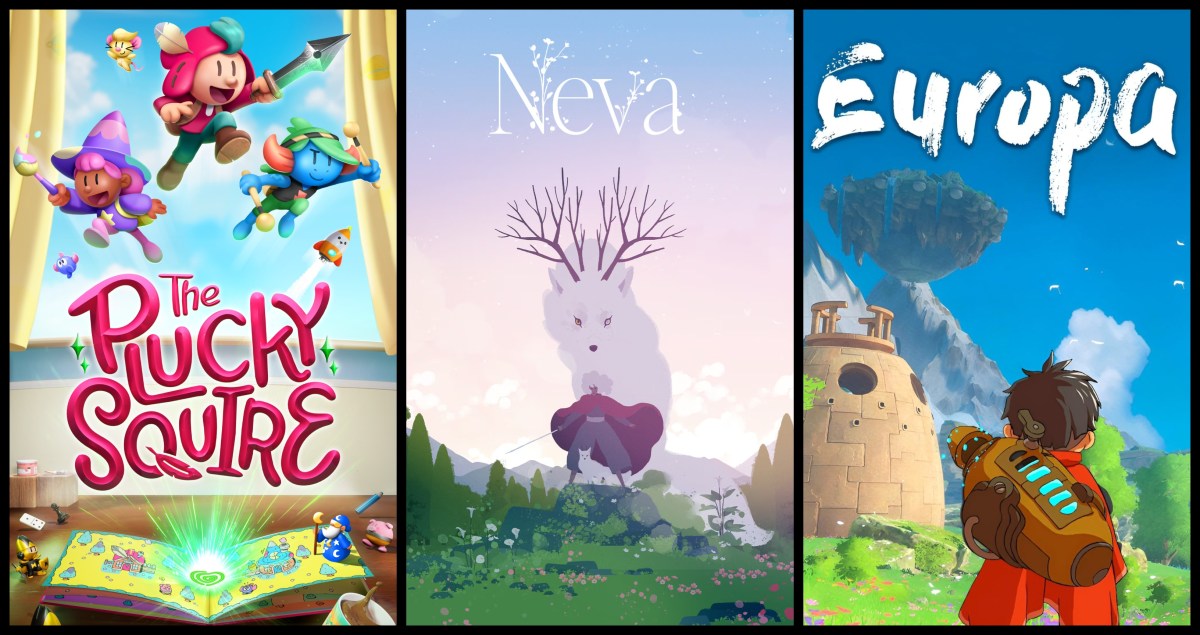
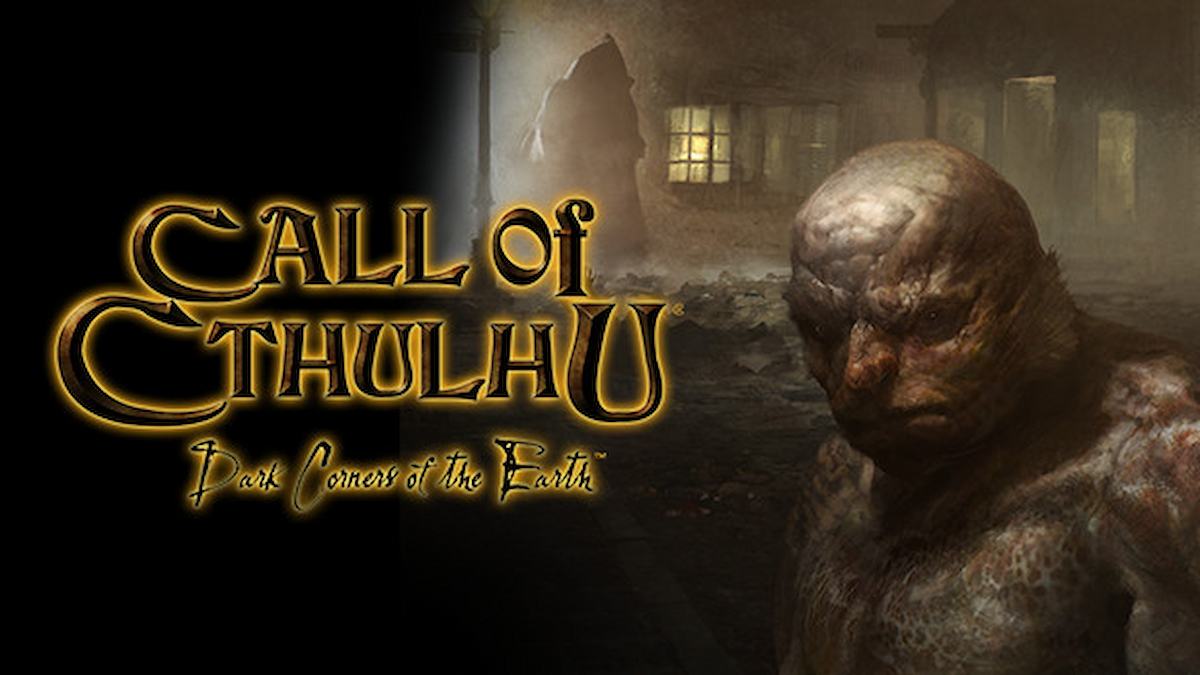
Published: Aug 27, 2017 02:16 pm